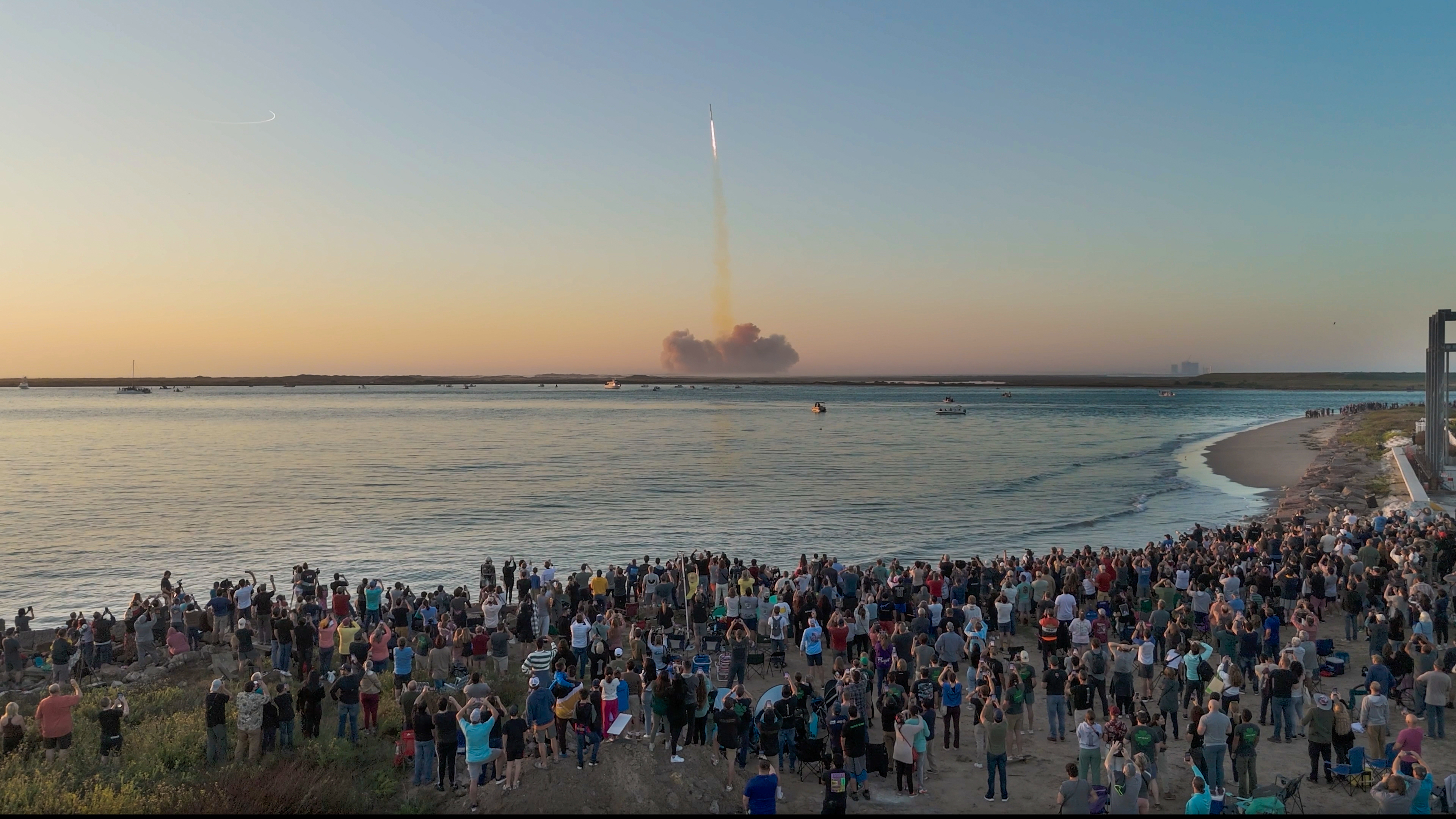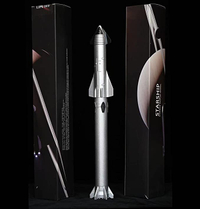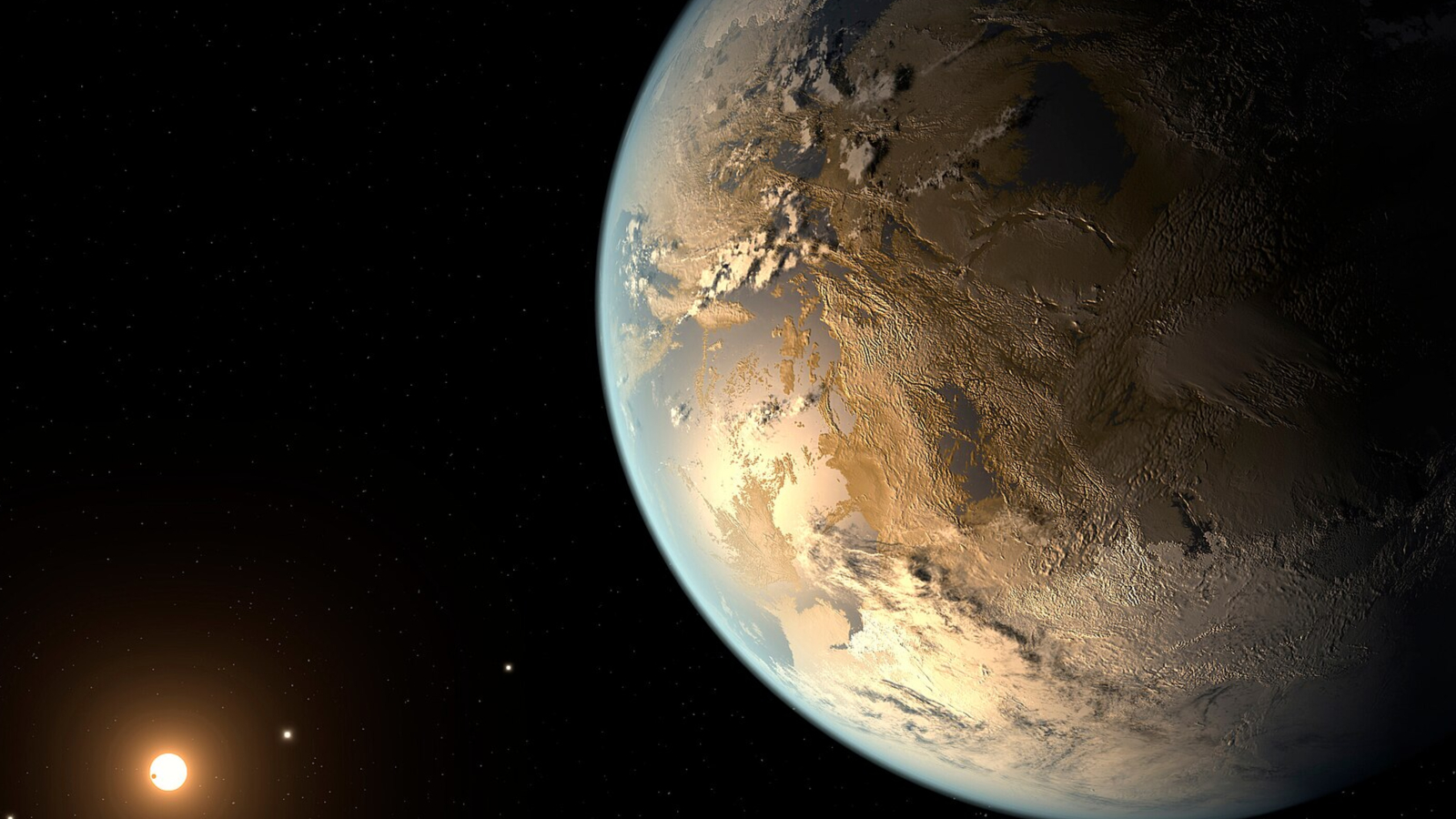
Space fans could be in for a holiday treat.
SpaceX's third Starship vehicle "should be ready to fly in 3 to 4 weeks," company founder and CEO Elon Musk said via X (formerly known as Twitter) on Sunday (Nov. 19).
That would place technical readiness before Christmas — but there's no guarantee Starship will be cleared for liftoff by then. SpaceX still needs to secure a launch license from the U.S. Federal Aviation Administration (FAA), which is overseeing an investigation into what happened Saturday (Nov. 18) during Starship's second-ever test flight.
Related: SpaceX's 2nd Starship launch test looks amazing in these stunning photos and videos
Saturday's mission, which lifted off from SpaceX's Starbase site in South Texas, aimed to send Starship's upper stage most of the way around Earth, wrapping up with a splashdown in the Pacific Ocean near Hawaii 90 minutes after launch.
But the flight ended about eight minutes in, with a "rapid unscheduled disassembly" of the craft. That wasn't the only explosion of the day; Starship's huge Super Heavy first stage was supposed to come back to Earth for a splashdown in the Gulf of Mexico about seven minutes after liftoff, but it broke apart high in the sky just after separating from the upper stage.
Starship did notch some important milestones on flight number two, however, and chief among them was successful stage separation, which did not occur on the vehicle's first test flight this past April. That debut flight ended just four minutes after launch, with a commanded detonation of the tumbling Starship vehicle.
Get the Space.com Newsletter
Breaking space news, the latest updates on rocket launches, skywatching events and more!
In addition, a handful of Super Heavy's 33 Raptor engines conked out early during the April flight, whereas all of them appeared to burn for the proper duration on Saturday. Starbase's orbital launch mount also seemed to emerge unscathed this weekend, whereas the April launch blasted out a big crater beneath it.
Starship Die Cast Rocket Model Now $69.99 on Amazon.
If you can't see SpaceX's Starship in person, you can score a model of your own. Standing at 13.77 inches (35 cm), this is a 1:375 ratio of SpaceX's Starship as a desktop model. The materials here are alloy steel and it weighs just 225g.
Note: Stock is low so you'll have to act quickly to get this.
Shortly after the April 20 flight, Musk said SpaceX would be ready to launch Starship again in just six to eight weeks.
It ended up taking much longer than that for the vehicle to get off the ground, of course. The FAA didn't grant a launch license until Nov. 15, after it had wrapped up an investigation into the explosion and conducted a safety review as well as an environmental assessment.
It's unclear when the agency's investigation into Saturday's flight will end; it just got underway, after all. But, given the progress SpaceX made with flight two compared to flight one, it would be surprising if there's another seven-month gap between Starship liftoffs.
SpaceX certainly seems to be gearing up for an increased test-flight cadence. "There are three ships in final production in the [Starbase] high bay (as can be seen from the highway)," Musk said in the Sunday X post.
Join our Space Forums to keep talking space on the latest missions, night sky and more! And if you have a news tip, correction or comment, let us know at: community@space.com.

Michael Wall is a Senior Space Writer with Space.com and joined the team in 2010. He primarily covers exoplanets, spaceflight and military space, but has been known to dabble in the space art beat. His book about the search for alien life, "Out There," was published on Nov. 13, 2018. Before becoming a science writer, Michael worked as a herpetologist and wildlife biologist. He has a Ph.D. in evolutionary biology from the University of Sydney, Australia, a bachelor's degree from the University of Arizona, and a graduate certificate in science writing from the University of California, Santa Cruz. To find out what his latest project is, you can follow Michael on Twitter.

